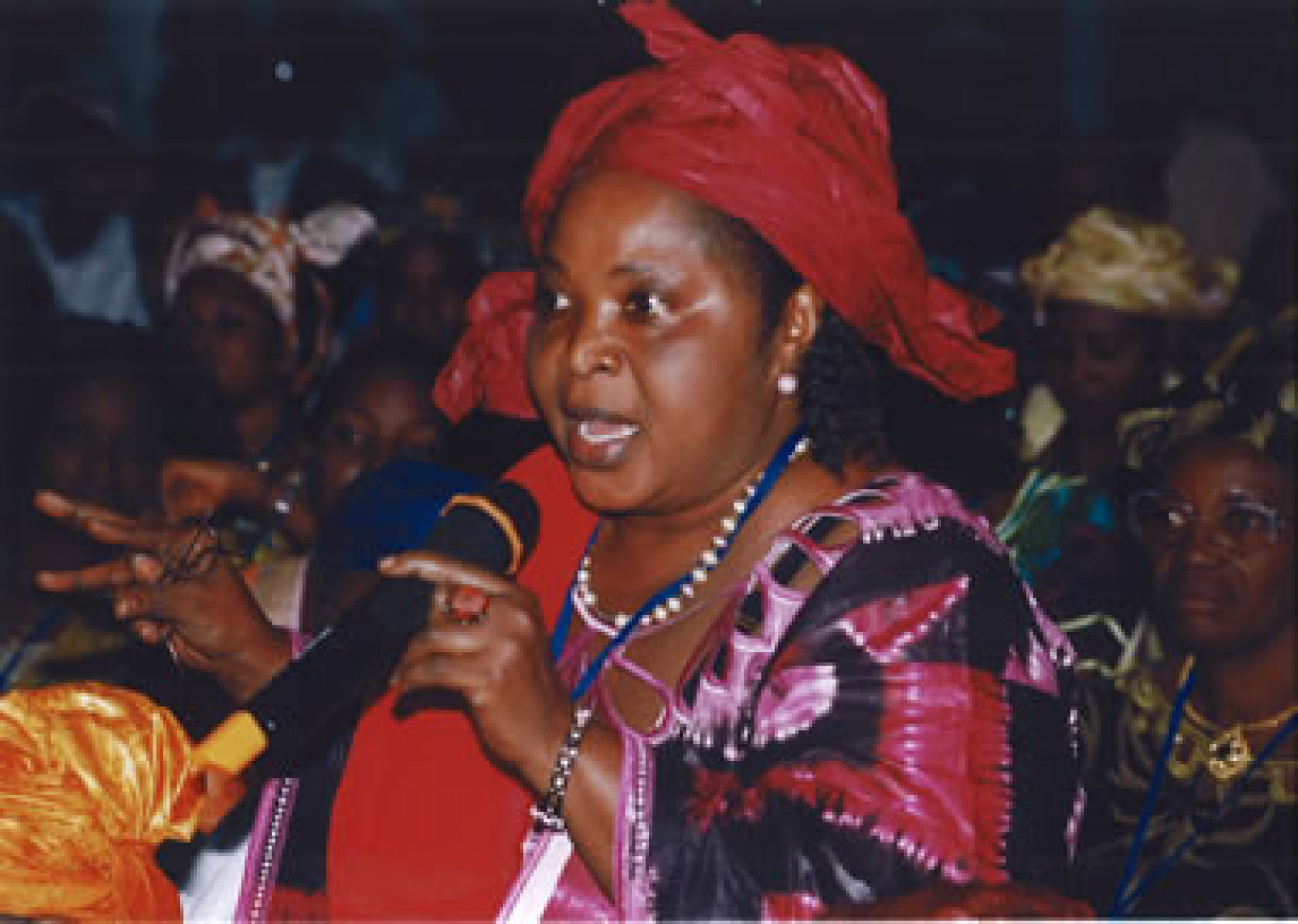
SHARE
A poor and vulnerable segment of the population, women in Guinea who aspire to leadership roles face a steep climb. The literacy rate for women is only 18 percent, compared to 42 percent for men, and in the last civilian government, women occupied only 19 percent of the seats in the national assembly and 15 percent of positions at the ministerial level.
But with legislative elections scheduled for early next year, NDI is working to help a great number of these women overcome the odds to become elected leaders.
Following the death of Guinean President General Lansana Conté last December, a military junta took power in a coup d'état. Promising a return to civilian rule by 2010, presidential elections are expected to be held next January, followed by legislative elections in March.
In the lead up to those polls, NDI is working with women political and civic leaders to encourage their active participation in the transition and to prepare potential women candidates. NDI's partner, the National Guinean Coalition for the Rights and Citizenship of Women, has been at the forefront of those advocating for transparent elections and for the greater inclusion of women in transition decision-making bodies.
To support those efforts, NDI recently organized a politics retreat in early July in the capital city of Conakry that offered workshops for potential women candidates on message and platform development, campaign and get out the vote strategies, media and public speaking skills and fundraising. Youth and political party leaders also were invited to attend plenary sessions, where the theme of gender and politics was discussed within a setting that included both women and men.
"We wanted to create a political environment that empowered women political leaders while simultaneously sensitizing their male political colleagues on the importance and strategic advantage of increasing the role of women in the national political debate," said Raphael Ouattara, NDI's senior resident director in Guinea.
The Conakry event attracted over 250 participants and featured seven international experts from Canada, Mali, Niger, Republic of Congo and Senegal who led workshops and offered their comparative experience. Senior political leaders from Mali with direct experience in transitioning from military to civilian rule led a panel on coalition building and the roles of political parties in transition.
As participants expressed their appreciation for the event, the president of Guinea's National Electoral Commission declared, "The political retreat will have a decisive impact on the transition in Guinea."
Following the successful launch, Guinean trainers took the lead in replicating the workshops in the country's seven regional administrative capitals -- Kindia, Mamou, Faranah, Boké, and Nzérékoré -- where NDI conducted the training in French as well as regional languages. More than 400 women attended the workshops between July 13 and 17.
The NDI politics retreat attracted significant media coverage while also providing potential women candidates with the opportunity to be heard on the radio in audio town hall meetings. These included a spirited discussion on community radio in N'Zerekore, where the participants described the importance of the training.
"I learned during the retreat how, as women, to run my political career to attain my life goal, which is political power for the peaceful advancement of democracy," one participant said.
NDI's current programming in Guinea is funded by the United States Agency for International Development.
Pictured above: A participant in the Conakry retreat.
Published on September 17, 2009


